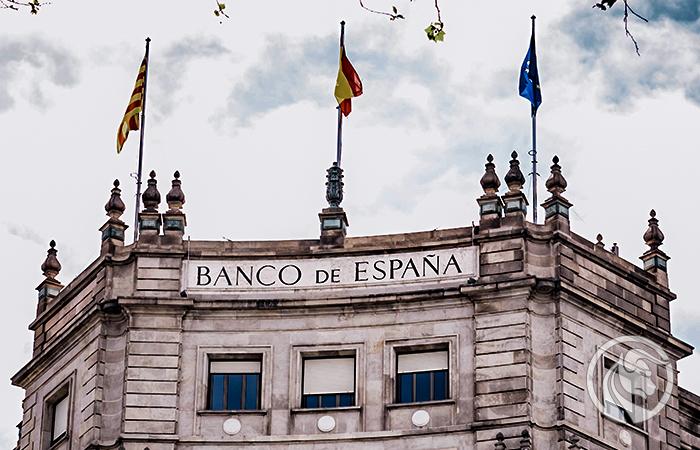The Bank of Spain has approved a euro-backed stablecoin
Bitcoin continued its winning streak in 2023: over the weekend it hit its biggest high in four months, just above $23.
The world's largest cryptocurrency started the week trading around $21 and saw little movement until Friday, when the price rose. Since then, the price has stabilized at a new level, hovering around $000 (this morning).
Meanwhile Ethereum experienced more price volatility over the past week, starting around $1 before dropping to $550 mid-week. Like BTC, the price rose late last week, peaking above $1 on Saturday. This morning, ETH is trading just below $500.
While neither bull market is a confirmation of broader trends, the positive movement of cryptocurrencies has coincided with easing concerns about macro trends in inflation and economic performance in major economies. Investors will be watching central bank activity in February with interest, but the turning point many have been looking for could come as inflation expectations ease in the coming year.
The Bank of Spain will launch a stablecoin project
The Bank of Spain has given permission to launch a pilot project stablecoina secured in euro, maintained by a fintech company MONEY. The project will allow users to issue their own stablecoins with each token backed by euro deposits held at major financial institutions BBVA and Caixabank.
This project is the next in a line of stablecoin test programs and it also proves that financial institutions recognize the importance of this technology within the wider cryptocurrency ecosystem and even the wider financial system.
Stablecoins are proving to be a key bridge between the fiat financial infrastructure and cryptocurrencies: they allow users to hold their assets digitally while maintaining a stable profile backed by fiat currencies. Stablecoins have the potential to make digital payments cheaper, faster and safer transactions, but much of the technology is still in exploratory stages of development.
Can stealth addresses appear in Ethereum?
The founder of Ethereum, Vitalik Buterin published blog exploring stealth addresses. Buterin considers the difficulties in implementing them and also raises the question of why they might be useful.
One of the main characteristics of cryptocurrencies is the relative transparency by which transactions are made. Even if you don't know who owns a particular wallet, you can see transactions to and from that wallet on any blockchain if you know where to look.
Buterin's proposal for stealth addresses could fundamentally change that and provide a mainstream platform in Ethereum. Whether this is desirable or not depends on the perspective taken. Regulators and law enforcement have become much more proficient in tracking and tackling criminal activity within the area in recent years blockchain. But for those who don't want their activities tracked, it can be a boon.
Cryptocurrency ransomware attacks decline
Cryptocurrency ransomware attacks down for first time since 2018 data from Chainalysis. In 2022, ransomware attackers took in around $457 million, down from $766 million in 2021.
This is by no means a decrease in the number of attacks, according to Chainalysis, it is mainly due to the fact that victims increasingly refuse to pay ransomware attackers. Changes in how ransomware payments are made have a big part in this as those who pay are potentially responsible for the breach regulations regarding sanctions.
While cryptocurrencies continue to suffer from such attacks and a range of other fraud issues, it is part and parcel of any financial ecosystem. It can only be avoided with robust safeguards among institutions, awareness among users, and proactive regulation that protects market participants from harm. A shift in regulatory oversight is underway this year, and with it the hope of a higher level of protection against criminal losses in the cryptocurrency community.






















![Forex Club – Tax 9 – Settle tax on a foreign broker [Download the Application] Forex Club - Tax 9](https://forexclub.pl/wp-content/uploads/2024/02/Forex-Club-Podatek-9-184x120.jpg?v=1709046278)
![Trading View platform – solutions tailored to the needs of traders [Review] trading view review](https://forexclub.pl/wp-content/uploads/2024/03/trading-view-recenzja-184x120.jpg?v=1709558918)
![How to connect your FP Markets account to the Trading View platform [Guide] fp markets trading view](https://forexclub.pl/wp-content/uploads/2024/02/fp-markets-trading-view-184x120.jpg?v=1708677291)
![How to invest in ChatGPT and AI? Stocks and ETFs [Guide] how to invest in chatgpt and artificial intelligence](https://forexclub.pl/wp-content/uploads/2023/02/jak-inwestowac-w-chatgpt-i-sztuczna-inteligencje-184x120.jpg?v=1676364263)


![WeWork – the anatomy of the collapse of a company valued at $47 billion [WeWork, part II] wework bankruptcy story](https://forexclub.pl/wp-content/uploads/2024/04/wework-bankructwo-historia-184x120.jpg?v=1711729561)
![Adam Neumann – the man who screwed up Softbank [WeWork, part AND] adam neumann wework](https://forexclub.pl/wp-content/uploads/2024/04/adam-neumann-wework-184x120.jpg?v=1711728724)





![How to transfer shares to another brokerage office [Procedure description] how to transfer shares to another brokerage house](https://forexclub.pl/wp-content/uploads/2024/03/jak-przeniesc-akcje-do-innego-biura-maklerskiego-184x120.jpg?v=1709556924)

![The most common mistakes of a beginner trader - Mr Yogi [VIDEO] Scalping - The most common mistakes of a beginner trader - VIDEO](https://forexclub.pl/wp-content/uploads/2024/03/Scalping-Najczestsze-bledy-poczatkujacego-tradera-VIDEO-184x120.jpg?v=1711601376)
![Learning patience: No position is also a position - Mr Yogi [VIDEO] Scalping - Learning patience - No position is also a position - VIDEO](https://forexclub.pl/wp-content/uploads/2024/03/Scalping-Nauka-cierpliwosci-Brak-pozycji-to-tez-pozycja-VIDEO-184x120.jpg?v=1710999249)
![When to exit a position and how to minimize losses - Mr Yogi [VIDEO] Scalping - When to exit a position and how to minimize losses - VIDEO](https://forexclub.pl/wp-content/uploads/2024/03/Scalping-Kiedy-wyjsc-z-pozycji-i-jak-minimalizowac-straty-VIDEO-184x120.jpg?v=1710336731)








